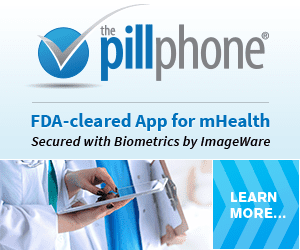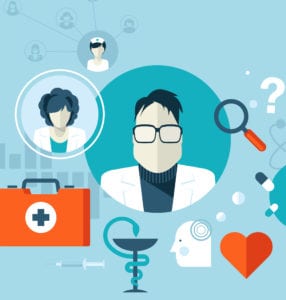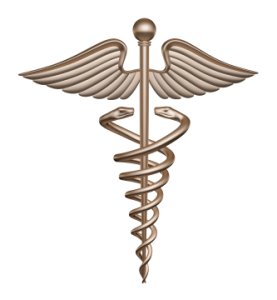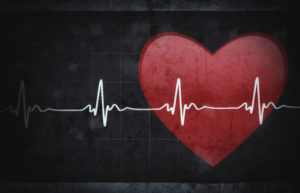February is Healthcare Biometrics Month at FindBiometrics, wherein we are placing a featured focus on the role of identity management and strong authentication in hospitals, clinics, home care, and the connected health space. Healthcare has long been an ideal market for biometrics, given its need for technology solutions that prioritize both time-saving convenience and high levels of security. To start things off properly, we have compiled a primer to get you up to speed on the current healthcare biometrics landscape based around major news and research from the past year.
The Research
 According to a recent report from Grand View Research, the global healthcare biometrics market is expanding dramatically, and will continue to do so, reaching a value of $11.7 million by 2024. The firm sees DNA recognition as playing a quickly growing role in the market, along with voice recognition, and states that there is a surge in demand for biometric healthcare solutions that can address the growing risk of identity theft. Transparency Market Research, in its own report examining the period between 2013-2019, focuses on the bottom line, asserting that biometrics are creating an administrative efficiency in healthcare that can save organizations billions of dollars annually.
According to a recent report from Grand View Research, the global healthcare biometrics market is expanding dramatically, and will continue to do so, reaching a value of $11.7 million by 2024. The firm sees DNA recognition as playing a quickly growing role in the market, along with voice recognition, and states that there is a surge in demand for biometric healthcare solutions that can address the growing risk of identity theft. Transparency Market Research, in its own report examining the period between 2013-2019, focuses on the bottom line, asserting that biometrics are creating an administrative efficiency in healthcare that can save organizations billions of dollars annually.
Read more about the healthcare biometrics market:
Global Healthcare Biometrics Market Will Continue to Surge: Report
Considerable Growth Predicted for Global Healthcare Biometrics Market
Patient ID Management
 A key application of biometric technology in healthcare is patient identification. By linking a patient’s identity to her biometrics, clinics, hospitals, and pharmacies benefit from administrative efficiency while also implementing strong anti-fraud measures. With a biometric element identifying a patient, the issue of duplicate records can be addressed by design, with a subject’s history and records linked to what she is and not simply biographic information that is susceptible to duplication via data entry error. Meanwhile, the anti-fraud capabilities are the same that biometrics brings to other verticals: with a patient’s identification tied to her fingerprint, palm vein image, or iris, fraudsters simply can’t imitate her when seeking to abuse the healthcare system.
A key application of biometric technology in healthcare is patient identification. By linking a patient’s identity to her biometrics, clinics, hospitals, and pharmacies benefit from administrative efficiency while also implementing strong anti-fraud measures. With a biometric element identifying a patient, the issue of duplicate records can be addressed by design, with a subject’s history and records linked to what she is and not simply biographic information that is susceptible to duplication via data entry error. Meanwhile, the anti-fraud capabilities are the same that biometrics brings to other verticals: with a patient’s identification tied to her fingerprint, palm vein image, or iris, fraudsters simply can’t imitate her when seeking to abuse the healthcare system.
The following articles deal with specific patient ID solutions and deployments that were announced in the past year:
CTS Healthcare Services Adopts Biometric Patient Identification
Adventist Health System Puts Faith in Biometrics
Research Suggests Biometric Identification Could Improve Pediatric Care
Lenovo Health Teams With LifeMed to Offer Patient ID Solution
Florida Hospital Takes Biometrics by the Hand
Indian Hospitals to Issue Aadhaar Cards Along with Birth Certificates
MediSmart Biometric Smart Card Solution Expands in East Africa
Special Applications of Biometrics in Electronic Health Records
 Electronic Health Records (EHR) are composed of the medical data that biometric patient ID links to said patient. Beyond the administrative efficiency and anti-fraud benefits described above, however, biometrics bring a lot of additional benefits to the use of EHR. In developing communities receiving aid from healthcare focused NGOs, biometrics can help clinicians access a patient’s record regardless of whether or not they speak the same language. In emergency situations when an unidentified patient is unable to identify herself, a scan of their biometrics to bring up their medical history could mean the difference between life or death. Biometrics can help track prescriptions too, ensuring a patient getting a diagnosis is the same person who is picking up the controlled substances themselves.
Electronic Health Records (EHR) are composed of the medical data that biometric patient ID links to said patient. Beyond the administrative efficiency and anti-fraud benefits described above, however, biometrics bring a lot of additional benefits to the use of EHR. In developing communities receiving aid from healthcare focused NGOs, biometrics can help clinicians access a patient’s record regardless of whether or not they speak the same language. In emergency situations when an unidentified patient is unable to identify herself, a scan of their biometrics to bring up their medical history could mean the difference between life or death. Biometrics can help track prescriptions too, ensuring a patient getting a diagnosis is the same person who is picking up the controlled substances themselves.
EHR Mismanagement Prompts Need for Biometric Patient ID: Imprivata
Safran Highlights Biometrics Benefits in Healthcare
NYU Medical Center Offers High-Profile Demonstration of Biometrics in EHR
U of U Health Care to Use Biometric Records Management
Ugandan Officials to Use Biometrics to Track HIV/AIDS Patients
Imprivata Extends Confirm ID Platform Beyond EPCS
Talk To Me, Doc
 Outside of identity, biometrics are also making medical record keeping easy on behalf of doctors. Just as we are seeing in consumer applications, automotive markets, and legal professions, speech recognition technology is finding a place in healthcare by allowing for handsfree updating to medical record via dictation. Take a look:
Outside of identity, biometrics are also making medical record keeping easy on behalf of doctors. Just as we are seeing in consumer applications, automotive markets, and legal professions, speech recognition technology is finding a place in healthcare by allowing for handsfree updating to medical record via dictation. Take a look:
Speech Recognition Tech Adds Punctuation to Dictated Health Records
Dictation Tech Brings Satisfaction to Medical Records Keeping: Survey
Vital Tracking and Patient Data
 Vital biometric measurements have enabled innovations in remote care, freeing up precious bed space in hospitals by allowing long-term patients to receive around the clock care from their homes. Furthermore, biometrics are advancing to the point where they can be used to potentially diagnose various maladies, including mental illness like PTSD. Of course, said data is precious and needs protecting, so as we have seen in other markets, biometric data transfer security and specifications are top priorities in healthcare.
Vital biometric measurements have enabled innovations in remote care, freeing up precious bed space in hospitals by allowing long-term patients to receive around the clock care from their homes. Furthermore, biometrics are advancing to the point where they can be used to potentially diagnose various maladies, including mental illness like PTSD. Of course, said data is precious and needs protecting, so as we have seen in other markets, biometric data transfer security and specifications are top priorities in healthcare.
Accenture to Advise Gov’t on Patient-Generated Health Data
Voice Biometrics Could Detect Heart Disease and Even PTSD
Nanotech-Infused Biometric Patch Offers Medical, Marketing Applications
NextGate Launches New Patient Data Exchange System
Access & Attendance
 Clinics, hospitals, pharmacies and other healthcare facilities don’t only need to identify and authenticate patients, they need to manage various levels of authorized access. The ability to view or change a patient’s EHR, access to the hospital’s wireless network, the ability to enter restricted areas or access medical supplies and drugs—these are all actions that bring with them a great deal of risk and responsibility, and biometric technology is the perfect solution to ensuring only those bodies with clearance are able to access such valuable information and restricted physical spaces. Furthermore, biometrics can be used to track attendance of clinicians and doctors, helping health spaces operate efficiently and accountably, all in the name of a safer, healthier public.
Clinics, hospitals, pharmacies and other healthcare facilities don’t only need to identify and authenticate patients, they need to manage various levels of authorized access. The ability to view or change a patient’s EHR, access to the hospital’s wireless network, the ability to enter restricted areas or access medical supplies and drugs—these are all actions that bring with them a great deal of risk and responsibility, and biometric technology is the perfect solution to ensuring only those bodies with clearance are able to access such valuable information and restricted physical spaces. Furthermore, biometrics can be used to track attendance of clinicians and doctors, helping health spaces operate efficiently and accountably, all in the name of a safer, healthier public.
Here are some of the many ways biometric access control is currently making healthcare more secure and accountable.
Physiotherapy Provider Adopts ievo Biometric Access Control
Biometric Attendance Tracking to Improve Patient Services at Pakistan Hospital
Multi-Health Systems to Integrate BioConnect Platform
US Home Builders Consultants Orders Rx DrugSAFEs
Prominent US Health Services Firm Aetna Joins FIDO Alliance
Healthcare Communications App Uses ImageWare’s Biometric Tech
*
Stay posted to FindBiometrics throughout February as we continue to examine biometric healthcare. Follow us on Twitter and make sure you see all of our special featured and guest content.
Healthcare Month 2017 is made possible by our sponsor: ImageWare Systems


Follow Us